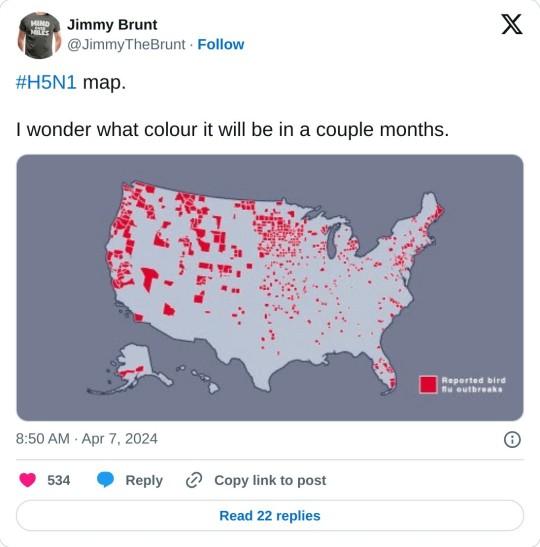#healthcare
Text









#it girl#that girl#that girl moodboard#that girl aesthetic#victoria secert model#victoria secret#vsco girl aesthetic#vsco girl#vsco#vscocam#tumblr 2015#2015 tumblr#2015 aesthetic#2015 nostalgia#2016 vibes#2016 tumblr#2016 aesthetic#tmnt 2016#2016 vibe#2016 tumblr aesthetic#healthy eating#healthy#healthy living#health and wellness#healthcare#health & fitness
54 notes
·
View notes
Text
Jessica Valenti at Abortion, Every Day:
Indiana Attorney General Todd Rokita says that abortion reports aren’t medical records, and that they should be available to the public in the same way that death certificates are. While Rokita pushes for public reports, New Hampshire lawmakers are fighting over a Republican bill to collect and publish abortion data, and U.S. Sen. Tommy Tuberville has introduced a bill that would require the Department of Veterans Affairs to collect and provide data on the abortions performed at its facilities.
Just last week, Kansas Gov. Laura Kelly vetoed legislation that would have required abortion providers to ask patients invasive and detailed questions about why they were getting abortions, and provide those answers in a report to the state.
All of these moves are part of a broader strategy that weaponizes abortion data to stigmatize patients and to prosecute providers. And while most states have some kind of abortion reporting law, legislators are increasingly trying to expand the scope of the data, and use it to dismantle women’s privacy.
Rokita’s ‘advisory opinion’, for example, argues that abortion data collected by the state isn’t private medical information and that in order to prosecute abortion providers, he needs detailed reports to be public.
In the past, the state has issued reports on each individual abortion. But as a result of Indiana’s ban, there are only a handful of abortions being performed in the state. As such, the Department of Health decided to release aggregate reports to protect patient confidentiality, noting that individual reports could be “reverse engineered to identify patients—especially in smaller communities.”
Rokita—best known for his harassment campaign against Dr. Caitlin Bernard, the abortion provider who treated a 10-year-old rape victim—is furious over the change. He says the only way he can arrest and prosecute people is if he gets tips from third parties, presumably anti-abortion groups that scour the abortion reports for alleged wrongdoing. He wants the state to either restore public individual reports, or to allow his office to go after abortion providers without a complaint by a third party. (Meaning, he could pursue investigations against doctors and hospitals without cause.)
Most troubling, though, is his insistence that women’s private abortion information isn’t private at all. Even though individual reports could be used to identify patients, Rokita claims that the terminated pregnancy reports [TPRs] aren’t medical records, and that they “do not belong to the patient.”
[...]
As I flagged last month, abortion reporting is becoming more and more important to anti-choice lawmakers and groups. Project 2025 includes an entire section on abortion reporting, for example, and major anti-abortion organizations like the Charlotte Lozier Institute and Americans United for Life want to mandate more detailed reports.
[...]
As is the case with funding for crisis pregnancy centers and legislation about ‘prenatal counseling’ or ‘perinatal hospice care’, Republicans are advancing abortion reporting mandates under the guise of protecting women. And in a moment when voters are furious over abortion bans, anti-choice lawmakers and organizations very much need Americans to believe that lie.
We have to make clear that state GOPs aren’t just banning abortion, but enacting any and every punitive policy that they can—especially those that strip us of our medical privacy. After all, it was less than a year ago that 19 Republican Attorneys General wanted the ability to investigate the out-of-state medical records of abortion patients.
Did we really think they were going to stop there?
@jessicavalenti writes a solid column in her Abortion, Every Day blog that the GOP's agenda to erode patient privacy of those seeking abortions is a dangerous one.
#Abortion#Healthcare#Anti Abortion Extremism#Privacy#Patient Privacy#Todd Rokita#Charlotte Lozier Institute#Project 2025#Americans United For Life#Dr. Caitlin Bernard#Abortion Bans#Tommy Tuberville
66 notes
·
View notes
Text
#avatar the way of water#sapphic nsft#nietzsche#maze runner#aika yumeno#monster high#thanksgiving#monsterfucker#red vs blue#soledad#高中生#healthcare
139 notes
·
View notes
Text
Quebec appears to be winning its battle against the rising tide of measles after 45 cases were confirmed province-wide this year.
"We've had no locally transmitted measles cases since March 25, so that's good news," said Dr. Paul Le Guerrier, responsible for immunization for Montreal Public Health.
There are 17 patients with measles in Quebec currently, and the most recent case is somebody who was infected while abroad, he said.
But it was no small task to get to this point.
Continue Reading.
Tagging: @newsfromstolenland
51 notes
·
View notes
Link
In all 645 people died in Maricopa County from heat last year, according to the county coroner.
To put that into context, there were 660 motor vehicle deaths in Maricopa County the year before. The number of deaths from heat was more than six times larger than what it was 10 years ago.
Many of those who died used methamphetamines and fentanyl. Their deaths were due to a combination of the extreme environmental heat and the effects of the drugs that can cause the body to overheat and reduce the person’s ability and judgment to seek cooler temperatures.
Sometimes the deaths were complicated by mental illness.
17 notes
·
View notes
Text

Gee, I thought these people were the ones who were like “If you don’t like it, you can just move to a blue state.”
And now they’re mad the guy is doing just that?
You can’t oppress and discriminate against someone then be mad when they take their highly useful skill elsewhere.
#lgbtq#news#louisiana#democrats#republicans#politics#healthcare#Nbc#nbc news#transgender#medicine#ron desantis
87K notes
·
View notes
Text



"If a pig catches both a human influenza A virus and an avian influenza A virus at the same time, it can spark a process known as viral reassortment — a genetic exchange in which flu viruses swap gene segments."
"Those swaps can introduce dramatic changes, producing a new virus with certain properties of a non-human strain coupled with the capacity to infect and spread between people."
"The death rate in humans may be upwards of 50 per cent, World Health Organization data suggests, though it's possible that milder infections are getting missed, skewing the case fatality ratio. Still, in a population that's never been exposed, the global impacts could be dire."
"More human cases could also be happening under the radar among farm workers who've moved to the U.S. from abroad, don't speak English as their first language, and may be hesitant to seek medical help, he added."
"So I think there's probably underreporting on both sides," Armstrong said."
"If [H5N1] gets into a population where there's constantly animals going in and out … it might not ever leave."
I've been watching this develop for the past several days, and apart from being terrified most people will not take this seriously (I've seen a handful of people already shout conspiracy on social media and it's alarming to see, as always). What I wanted to point out is that pandemics are going to continue to be our 'normal.' I watched a great video on YouTube a while ago (I believe it was by Vice?) that touched base on how this is going to become our new reality because of multiple factors (such as our proximity to animals, and environments/etc). It was when Covid hit and they did a piece debunking some of the misinformation floating on the internet. If I can find it I will post it here because it was informative and relevant to pretty much any world crisis we will see around any virus that spreads among a human population.
This post isn't trying to fear monger anyone, I just hope more people are aware of what is happening because this is important to talk about. There are already cases (of cows getting this bird flu) in the US, and I won't be surprised if there will be instances in more countries around the world. As usual, keep washing your hands/keeping good hygiene practices, masking up (and if you aren't I hope you consider it), and taking precautions if you do happen to visit/work or go near a pig or poultry farm too:
I'll keep track of this here of course, but please stay informed folks. And also FU to any governments who will try to minimize this or try to diminish the severity until it's too late and community spread happens like Covid because their actions are influenced by capitalistic interests.
Update (April 7th, 2024, 9:32pm EST): to anyone wondering where some of the source information originates from -here is a link to the CDC. They are tracking documented avian virus outbreaks in the US and the public can access it here:
#current news#current events#global news#united states#cattle#cows#cattle farming#avian flu#bird flu#h5n1#mask up#pandemic#covid#covid isn't over#covid conscious#covid is airborne#covid is not over#viruses#fuck capitalism#anti captialism#healthcare#public health#world health organization#cdc#news update#update
15K notes
·
View notes
Text

49K notes
·
View notes
Text

11K notes
·
View notes
Text
Horrible fact of the day: Chevron just released a new boat fuel that WILL give you cancer.
Not "might", not "could", WILL. It has a cancer ratio of 1.3:1, as in, in a group of 10 people, 10 would contract CANCER.
(Edit: apparently some articles are now saying 1.4:1, and some are saying a little under that. Either way, the consensus seems to be anywhere between a 95-100+% of contracting cancer, with some expectations of this fuel not even needing a full lifetime of exposure for you to get Cancer.)
The EPA's safety limit is 1:1,000,000 as in 1 in a million people get cancer.
The EPA approved it anyways. I am not joking. The EPA approved a boat fuel that has a near 100% chance of giving someone cancer. It has such a good chance of giving someone cancer that if you DIDN'T get cancer YOU WOULD BE AN OUTLIER.
Fuck the oil industries.
Edit: If you find this (rightfully) horrifying, have you considered industrial sabotage? /hj
This isn't something we can vote away. This isn't something the rich are gonna apologize and make a 10 minute apology video for this. They don't care if you starve or wither in hospitals or get blown up in their wars.
If you don't know where to get started:
If you already know what to do, then it's time to do it. Participate in mutual aid, raise awareness in real life as well as online, participate in or train in self defense and emergency medical training classes.
#anarchy#chevron#fuel#oil#news#health#healthcare#cancer#research#anarchism#leftism#anarchist#leftist#communist#socialism#socialist#eco#green#earth
33K notes
·
View notes
Text
The study itself is titled, “Long-Term Regret and Satisfaction With Decision Following Gender-Affirming Mastectomy,” and sought to study the rate of regret and satisfaction after 2 years or more following gender affirming top surgery. The study’s results were stunning - in 139 surgery patients, the median regret score was 0/100 and the median satisfaction score was 5/5 with similar means as well. In other words… regret was virtually nonexistent in the study among post-op transgender people.
In fact, the regret was so low that many statistical techniques would not even work due to the uniformity of the numbers:
In this cross-sectional survey study of participants who underwent gender-affirming mastectomy 2.0 to 23.6 years ago, respondents had a high level of satisfaction with their decision and low rates of decisional regret. The median Satisfaction With Decision score was 5 on a 5-point scale, and the median decisional regret score was 0 on a 100-point scale. This extremely low level of regret and dissatisfaction and lack of variance in scores impeded the ability to determine meaningful associations among these results, clinical outcomes, and demographic information.
The numbers are in line with many other studies on satisfaction among transgender people. Detransition rates, for instance, have been pegged at somewhere between 1-3%, with transgender youth seeing very low detransition rates. Surgery regret is in line with at least 27 other studies that show a pooled regret rate of around 1% - compare this to regret rates from things like knee surgery, which can be as high as 30%. Gender affirming care appears to be extremely well tolerated with very low instances of regret when compared to other medically necessary care.
[...]
The intense conservative backlash, to the point of disputing reputable scientific journals, likely stems from the fact that reduced regret rates weaken a central narrative these figures have championed in legal and legislative spaces. Over the past three years, anti-trans entities have showcased political detransitioners, reminiscent of the ex-gay campaigns from the 1990s and 2000s, to argue that regrets over gender transition and detransition are widespread. Some have even asserted detransition rates of up to 80%, a claim that has been broadly debunked. Yet, research consistently struggles to find substantial evidence supporting this narrative. The rarity of detransition and regret is underscored by Florida's inability to enlist a single resident to bear witness against a lawsuit challenging the state's ban on gender-affirming care.
19K notes
·
View notes
Text
"The Biden Administration last week [early December, 2023] announced it would be seizing patents for drugs and drug manufacturing procedures developed using government money.
A draft of the new law, seen by Reuters, said that the government will consider various factors including whether a medical situation is leading to increased prices of the drug at any given time, or whether only a small section of Americans can afford it.
The new executive order is the first exercise in what is called “march-in-rights” which allows relevant government agencies to redistribute patents if they were generated under government funding. The NIH has long maintained march-in-rights, but previous directors have been unwilling to use them, fearing consequences.
“We’ll make it clear that when drug companies won’t sell taxpayer funded drugs at reasonable prices, we will be prepared to allow other companies to provide those drugs for less,” White House adviser Lael Brainard said on a press call.
But just how much taxpayer money is going toward funding drugs? A research paper from the Insitute for New Economic Thought showed that “NIH funding contributed to research associated with every new drug approved from 2010-2019, totaling $230 billion.”
The authors of the paper continue, writing “NIH funding also produced 22 thousand patents, which provided marketing exclusivity for 27 (8.6%) of the drugs approved [between] 2010-2019.”
How we do drug discovery and production in America has a number of fundamental flaws that have created problems in the health service industry.
It costs billions of dollars and sometimes as many as 5 to 10 years to bring a drug to market in the US, which means that only companies with massive financial muscle can do so with any regularity, and that smaller, more innovative companies can’t compete with these pharma giants.
This also means that if a company can’t recoup that loss, a single failed drug can result in massive disruptions to business. To protect themselves, pharmaceutical companies establish piles of patents on drugs and drug manufacturing procedures. Especially if the drug in question treats a rare or obscure disease, these patents essentially ensure the company has monoselective pricing regimes.
However, if a company can convince the NIH that a particular drug should be considered a public health priority, they can be almost entirely funded by the government, as the research paper showed.
Some market participants, in this case the famous billionaire investor Mark Cuban, have attempted to remedy the issue of drug costs in America by manufacturing generic versions of patented drugs sold for common diseases."
-via Good News Network, December 11, 2023
#united states#us politics#biden administration#executive order#prescription drugs#medical news#healthcare#healthcare access#biden#big pharma#drug prices#public health#nih#national institutes of health#good news#hope
10K notes
·
View notes
Text

#the supreme court#roe v wade#roe versus wade#politics#scotus#obama#activism#human rights#abortion#reproductive rights#healthcare#feminism#women’s rights#meme#memes#*mypost
114K notes
·
View notes
Text

#women’s rights#can’t believe this is the world we live in now#activism#feminism#roe vs wade#roe versus wade#roe v wade#supreme court#scotus#politics#human rights#reproductive rights#american politics#america#healthcare#gun control#feminist#*posts
90K notes
·
View notes
Text
Dozens of health-care workers picketed outside of Regina's Pasqua Hospital on Friday to ask the province to address conditions in Saskatchewan's health-care system.
The rally, organized by the Canadian Union of Public Employees (CUPE), was the fourth in a series across Saskatchewan, with the other three held in Weyburn, North Battleford and Prince Albert this month.
CUPE 5430 president Bashir Jalloh said the union has been at the bargaining table since September 2023 and is frustrated with the province's pace.
"The process is extremely slow. Our members are getting frustrated. People want meaningful wages," Jalloh said.
Jalloh said workers are looking for a "significant'' pay raise in line with inflation, better working conditions and investments to improve Saskatchewan's retention rate for health-care workers. [...]
Continue Reading.
Tagging: @newsfromstolenland
27 notes
·
View notes
Text
*Not counting routine checkups or normal doctor's visits– this is asking about serious illness, injury, etc where you were in a bed.
–
We ask your questions so you don’t have to! Submit your questions to have them posted anonymously as polls.
#polls#incognito polls#anonymous#tumblr polls#tumblr users#questions#medical#hospital#healthcare#doctors#polls about health
7K notes
·
View notes